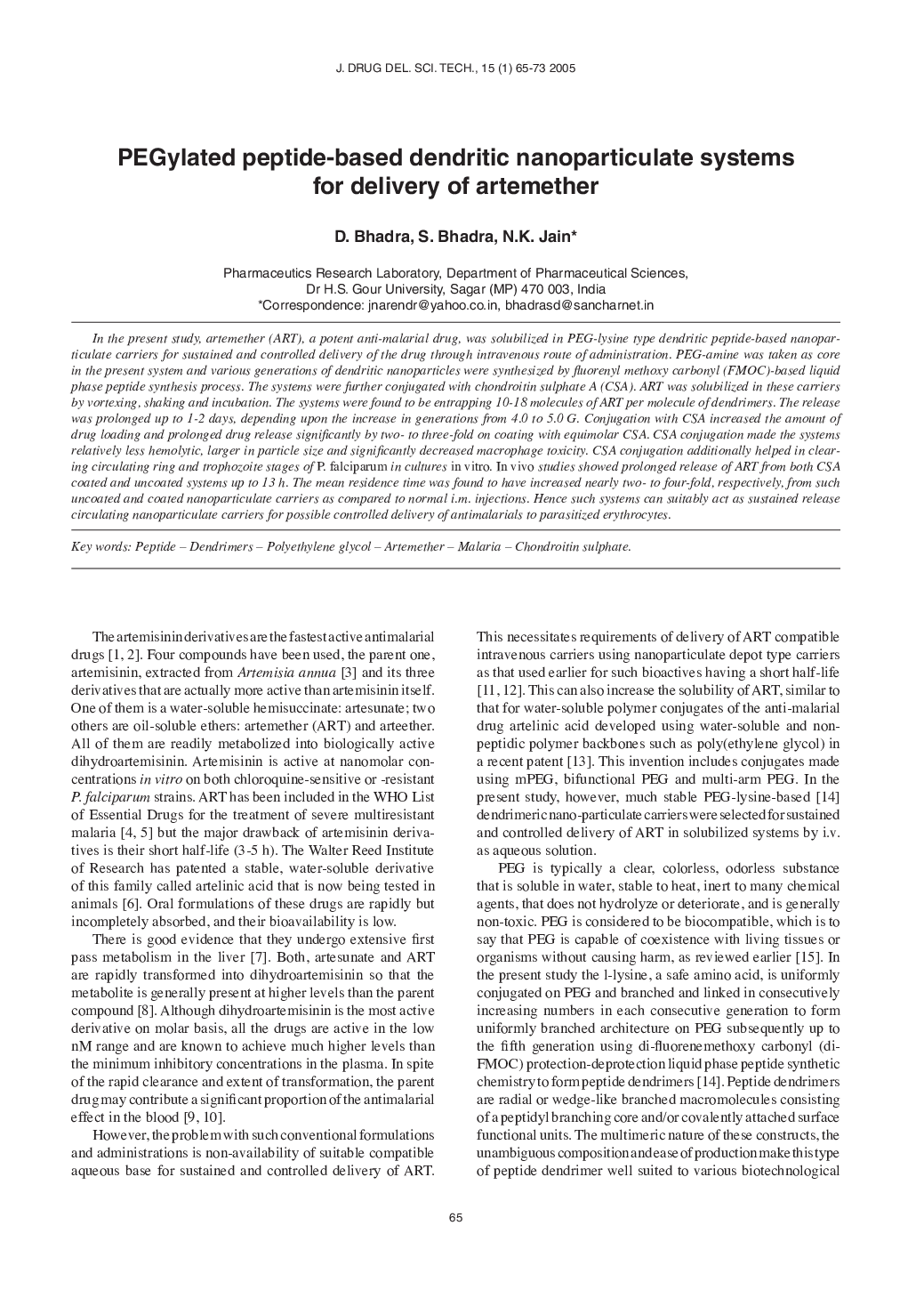| Article ID | Journal | Published Year | Pages | File Type |
|---|---|---|---|---|
| 8994288 | Journal of Drug Delivery Science and Technology | 2005 | 9 Pages |
Abstract
In the present study, artemether (ART), a potent anti-malarial drug, was solubilized in PEG-lysine type dendritic peptide-based nanoparticulate carriers for sustained and controlled delivery of the drug through intravenous route of administration. PEG-amine was taken as core in the present system and various generations of dendritic nanoparticles were synthesized by fluorenyl methoxy carbonyl (FMOC)-based liquid phase peptide synthesis process. The systems were further conjugated with chondroitin sulphate A (CSA). ART was solubilized in these carriers by vortexing, shaking and incubation. The systems were found to be entrapping 10-18 molecules of ART per molecule of dendrimers. The release was prolonged up to 1-2 days, depending upon the increase in generations from 4.0 to 5.0Â G. Conjugation with CSA increased the amount of drug loading and prolonged drug release significantly by two- to three-fold on coating with equimolar CSA. CSA conjugation made the systems relatively less hemolytic, larger in particle size and significantly decreased macrophage toxicity. CSA conjugation additionally helped in clearing circulating ring and trophozoite stages of P falciparum in cultures in vitro. In vivo studies showed prolonged release of ART from both CSA coated and uncoated systems up to 13Â h. The mean residence time was found to have increased nearly two- to four-fold, respectively, from such uncoated and coated nanoparticulate carriers as compared to normal i.m. injections. Hence such systems can suitably act as sustained release circulating nanoparticulate carriers for possible controlled delivery of antimalarials to parasitized erythrocytes.
Related Topics
Health Sciences
Pharmacology, Toxicology and Pharmaceutical Science
Drug Discovery
Authors
D. Bhadra, S. Bhadra, N.K. Jain,
